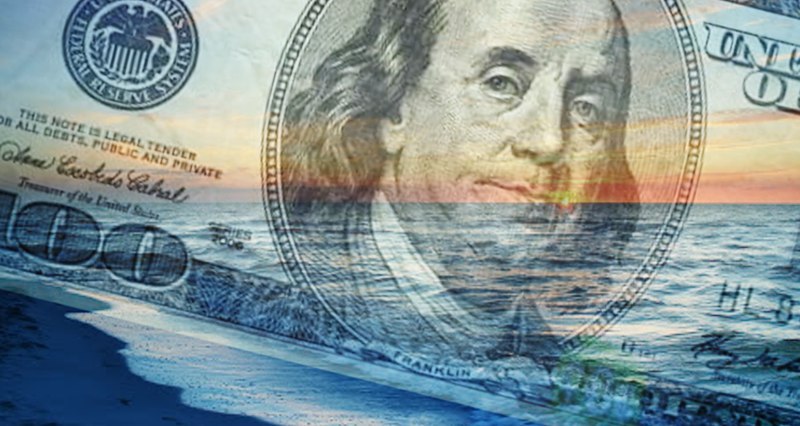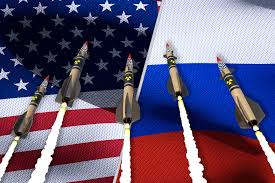Let us begin with an excerpt from an article dated May 5, 2020 by the former director of STRATFOR, an American Think Tank, George Friedman. In his article titled ‘Power and the Rise and Fall of Nations’, Friedman wrote:
“The public perception of power is rooted in events that might have little to do with power. The reality of power can be simply defined as the ability to compel others to act according to your wishes, even against their own interests. This is a complex equation. On one side is a definition of how nations might compel behavior. On the other side is the evaluation by the object of power as to whether the pain of resistance or the pain of capitulation is greater. These can only be understood in the details: the nations involved, what is being asked of them, the intensity of the pain and so on… But the general instruments of power can be readily understood. There is military power, which is ultimately the threat or reality of death and physical destruction. There is then economic power, which is the pain that can be inflicted by a wide range of economic actions, such as withholding needed products or manipulating currency. This type of power does not inflict death, but it constrains lives by threatening to inflict poverty or lower standards of living. The third type of power is political. It is the manipulation of the political system or public opinion in a country by the threat or application of military force, the imposition of economic pain, or the creation of a sense of reality that causes the public to react in ways that weaken the nation. Power is not simply the ability to coerce; sometimes it involves the use of incentives. Either can compel changes in action.”
The article focuses on US-China feud and complements the main argument with a synthesis that the US leadership will prevail on the basis of its ability to compel others toward Pax Americana and the “Washington Consensus”; military power, economic coercion, perceptual manipulation, and suffering….
THREAT BY MILITARY FORCE
Shortly after Friedman published his article, a development unseen since the Cold War era took place. For the first time, three American destroyers, an offshore support ship, and a British frigate conducted naval exercises in Russia’s backyard, the Barents Sea. Simultaneously, American B1 bombers and USS Barry cruisers respectively carried out Freedom of Navigation operations (FONOPS) in the East China Sea and the South China Sea. Another related activity transpired in Venezuela with an unsuccessful coup attempt by US-backed militias against Nicolas Maduro, the country’s president.
THREAT TO TURKEY IN THE EASTERN MEDITERRANEAN
We saw similar moves in the Eastern Mediterranean cradle. The US ambassador in Nicosia (Cyprus), Judith Garber, visited commander of the Greek Cypriot National Guard, Lieutenant General Demokritos Zervakis on May 12, 2020. Before her departure, the two posed in front of a photo of Girne (North Cyprus). It was an interesting scene. The press statement on the visit expressed concern over Turkey’s activities in the Eastern Mediterranean, especially Yavuz drilling ship’s presence, and gave a signal over Girne (Kyrenia)’s photo. 15 days after this meeting, on the morning of May 27, 2020, the US ambassador in Athens, Jeffrey Payat, gave an interview to the Greek MEGA TV and continued to attack Turkey: “We are in solidarity with Greece against Turkey’s provocations in Meriç (Evros) and the Aegean Sea”.
The ambassador stressed that American-Greek relations are at an all-time high and added “We are completely opposed to the maritime demarcation agreement between Turkey and Libya”. He underlined that islands are entitled to same rights as mainland (apparently, he is unaware of the US-Cuba case in Gulf of Mexico) and maritime borders cannot be delimited by unilateral moves such as Turkey’s (he should be reminded of Greek Cypriot unilateral EEZ declaration on April 2, 2004). Asked about his red lines, he said “As the US, we cannot allow two NATO allies to engage in provocative moves that may ignite an armed conflict, unintentionally or otherwise, in such a geopolitically significant region”.
THE TRUE TARGET IS RUSSIA
At the end, he remembered to add: “Vladimir Putin is the one posed to gain from an escalation. They are opposed to the Euro-Atlantic bloc’s values, principles, and institutions”. 48 hours after the US ambassador’s statement in Athens, a US B1 aircraft was sent on a hugely provocative trial mission for bombing over the Baltic and the Black Seas, joined by Ukrainian warplanes and Turkish aerial-refueling aircraft. The US Air Force bulletin “Air Force Times” took the event on its pages with the headline “B-1B aircraft fulfilled their bomber task force mission together with Ukrainian and Turkish aircraft”. Meanwhile, Ankara stated at the highest level that there is no disruption to the S-400 Air Defense system program.
We would like to wish that Turkey’s participation in such an exercise with heavy bombers unseen even during the Cold War era is not related either with messages of threat from the Eastern Mediterranean or the US Dollar/ Turkish Lira’s exchange rate hike to 7,26 TL in early May.
THINK TANKS PROVOKE
On the other hand, on May 27, 2020, on the same day in northern Syria’s Deir ez-Zor region, American-made medium range air defense missiles were given to the terrorist PKK / YPG organization, the Washington DC-based CEPA think-tank published a document authored in chief by the former US European Army Commander General Ben Hodges titled “’One Flank, One Threat, One Presence: A Strategy for NATO’s Eastern Flank”, making recommendations of extremely provocative measures and proposals for the Black Sea that bear risks to bring NATO and Russia to the level of armed conflict.
The document proposes to arm Romania with all types of offensive weapons and to establish NATO Black Sea Standing Maritime Patrolling that pose serious danger to destabilize the Montreux Treaty of Turkish Straits and to disrupt the regional balance.
CONTRIBUTIONS OF TURKISH ACADEMICS
It is possible, of course, to say that US provocations in the Black Sea have taken a front seat in Turkish public diplomacy. For example, after a long break, just last week, we noticed an increase in the number of articles and tweets from Turkish academics on foreign media and think-tank publications that depict suspicion and anxiety towards development of Turkish-Russian relations.
I have to say that it is difficult to decouple these activities from the aggressive propaganda by liberal and FETÖ-related groups last week against the Blue homeland concept and Turkey’s vital interests in the Eastern Mediterranean. It is simply a fact that these activities have surged following Admiral Yaycı’s resignation.
TURKEY’S DIFFICULT PERIOD
It is a fact that we will face economic and financial difficulties, especially unemployment, after the COVID-19 pandemic comes to an end. The US dollar’s appreciation put smiles on the faces of those with a mandate mentality, excited them, and put them in a good mood. Some social segments even synthesized emotions that would efface the disaster of July 15, 2016.
THE MORALE OF FETÖ
A FETÖ fugitive militant’s reckless statement last week saying “CHP won Istanbul mayoral elections thanks to us”; Recently formed political parties’ perception of FETÖ and PKK in the realm of thought crimes; Resignation of the Admiral who played a key role in the fight against FETÖ and architected the Turkey-Libya Maritime Delimitation Agreement, instigated an unthinkable attack on social media by fugitive FETÖ groups abroad since 15 July 2016. The situation greatly excited mandate-supporters who view Turkey’s self-defense of its geopolitical interests as defiance of NATO and the Euro-Atlantic bloc; and these useful fools whose sole aim is to criticize the government even if the state’s vital interests are in jeopardy.
These attacks cannot be singled out. Continuous American threat discourse in line with George Friedman’s article on prescription of suffering, provocative maneuvers against Russia by NATO and the US, and appreciation of the US dollar in Turkey might have led Washington DC and other western capitals to lay out alternative plans.
HISTORY IS MORE CREATIVE THAN HUMAN-BEINGS
However, let us not ignore the creativity of history and fortune. On May 27, 2020, when the US conducted provocative flights in the Black Sea and the Baltic, an ordinary police officer murdered a black-American citizen, unaware of the cascading shock waves his actions would spark in Minneapolis and the world. Last words of dying George Floyd were “I can’t Breathe”. These words, which in General Nejat Eslen’s definition marked the start of the American Spring in the US, turned into extremely violent public protests in many US states.
At a time when the US is desperately trying to deal with the COVID-19 contagion, after it lost 100,000 citizens, and 40 million emerged unemployed, a country that ranks near the top in income inequality index tells us that the age of global governance based on George Friedman’s prescriptive pain infliction is over.
When, retrospectively, Turkey should have self-confidence on the 100th anniversary of the Treaty of Sèvres, it is painful that mandate-supporters among us are unable to recognize this. In the 1920s, Damat Ferit perceived Britain as the greatest power on earth after God; and let us remind those who insist to see Britain’s heir, the US, as the main force in world affairs. Nothing ranks higher in importance than geopolitical interests of our country.
If past generations had selfishly considered their well-being and happiness above all else and had not rebelled against Sèvres, today we would probably be living as colonial subjects in the British Commonwealth. I would like to remind that those generations fought from 1911 until the end of 1922. There were hundreds of thousands of hungry, thirsty, homeless, poor, and sick people in utterly horrendous conditions unable to meet even their basic needs. Houses were without men. But in the end, we prevailed.
WE MUST RESIST IMPERIALISM
Let us not be a useful pillar of the strategy and of the Rimland designed by the US, which acts and seeks to govern Turkey in accordance with its interests from 6000 mile away, to provoke and drive wedges between our country and the neighborhood, and to inflict great losses on Turkey. Let us not fall prey to a chaotic US’ outdated Cold War jargon. Do not negotiate our geopolitical interests in return for shaky US dollars whose global throne is all but secure.
If we breath freely today, it is due to past sacrifices. Let us never bend over and consider making concessions from vital interests of our grandchildren, especially those in the Eastern Mediterranean, the stability and balance environment established in the Black Sea for the last 84 years, due to US economic pressure and threats. If today everyone from a shepherd in the plain to a fisherman in the Blue Homeland, from a farmer in the field to a worker in the factory, embraces Mustafa Kemal day by day and walks in his light, there is only one reason: he resisted imperialism and won. Today’s generations should be aware of this history and show loyalty toward those of the future.

















Leave a Reply